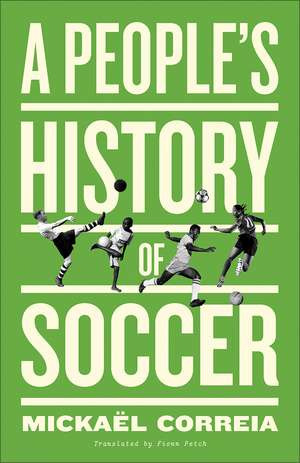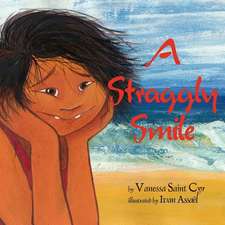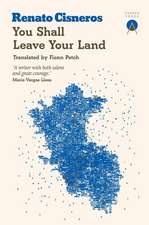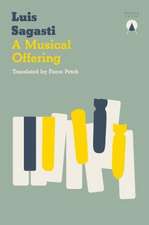A People's History of Soccer
Autor Mickaël Correia Traducere de Fionn Petchen Limba Engleză Paperback – 20 oct 2023
‘An essential read for soccer fans everywhere’ Juliet Jacques, writer, filmmaker and journalist
‘A fascinating journey through the game’s history [as] a vehicle of change’ Shaka Hislop, former player, anti-racist educator and broadcaster
Soccer is so much more than the billionaire owners and eye-watering signing fees that dominate the headlines. Look beyond the Premiership and the World Cup, the sublime brilliance of Messi and Mbappé, and you'll find a story unparalleled in the world of sport.
From England, France, and Germany to Palestine, South Africa, and Brazil, A People's History of Soccer reveals how the 'beautiful game' has been a powerful instrument of emancipation for workers, feminists, anti-colonialist activists, young people, and protesters worldwide.
Countering the clichés about soccer fans, Mickaël Correia dives into soccer countercultures born after the Second World War, from English hooligans to the ultras who played a central role in the 'Arab Spring.' With chapters on anti-fascism, the women's game, and the rise in community-owned clubs, Correia reminds us that soccer can be a powerful social and political force - as generous as it is subversive.
Mickaël Correia is a journalist at Mediapart. He is the author of several books focusing on social and ecological struggles and working-class culture. He has written for Le Monde Diplomatique, Le Canard Enchaîné, and La Revue du Crieur. His passion for soccer began when he was 4, with kickabouts on the streets of Roubaix.
Preț: 131.95 lei
Nou
Puncte Express: 198
Preț estimativ în valută:
25.25€ • 26.100$ • 21.05£
25.25€ • 26.100$ • 21.05£
Carte disponibilă
Livrare economică 27 martie-10 aprilie
Preluare comenzi: 021 569.72.76
Specificații
ISBN-13: 9780745348766
ISBN-10: 0745348769
Pagini: 464
Dimensiuni: 140 x 216 x 38 mm
Greutate: 0.51 kg
Editura: PLUTO PRESS
Colecția Pluto Press
ISBN-10: 0745348769
Pagini: 464
Dimensiuni: 140 x 216 x 38 mm
Greutate: 0.51 kg
Editura: PLUTO PRESS
Colecția Pluto Press
Recenzii
'A fascinating journey through the game's history. While so much of today's attention is on the highest end of the sport- the money and the glory associated with today's biggest stars- football has always been about so much more: a vehicle of expression, of example and of change. A People's History of Football tells the stories of how, why and when.'
Shaka Hislop, former footballer, anti-racist educator and broadcaster
'Correia takes us around the world to examine how soccer has produced the kind of political energy that can change minds and even topple governments. But despite his global jaunt into many corners of the soccer world, there is nothing superficial here. This book is about the politics of passion and they sing from every page.'
Dave Zirin, Sports Editor, The Nation
'Often we lose sight of the real history of football, the time before the Premier League and state-owned football clubs. There are fans, players and teams that built the game and truly harnessed it as not just a sport but a force for good and a way to build long lasting communities. That history needs to be told, archived and remembered. This is an essential history of the people’s game.'
Flo Lloyd-Hughes, freelance sportswriter and broadcaster
'A wide-ranging and well-researched look at how the masses have attempted to protect and reclaim their sport from the classes, all over the world. An essential read for football fans everywhere.'
Juliet Jacques, writer, filmmaker and Clapton CFC player
'Soccer fans and players everywhere, in the stands or the pitch, recognize in their chests' pounding the collective heart of a heartless world. With the rise of popularity of the MLS in the United States, America's historically apolitical sports culture has been suddenly ruptured with the protests and tifos of dozens of radical-left fan clubs. A rich and superbly-researched materialist account of how soccer emerged from feudal origins to become the most popular, and most political modern sport.'
A.M. Gittlitz, author, I Want to Believe: Posadism, UFOs and Apocalypse Communism
'An enjoyable highlights reel of stories from Barcelona to Brazil that show why [soccer] can still legitimately be seen as the people’s game'
Houman Barekat, ‘Irish Times’
‘Epic … there is much to learn and enjoy in this book’
‘Times Literary Supplement’
‘Shows that football can be a force for good’
‘The Markaz Review’
Shaka Hislop, former footballer, anti-racist educator and broadcaster
'Correia takes us around the world to examine how soccer has produced the kind of political energy that can change minds and even topple governments. But despite his global jaunt into many corners of the soccer world, there is nothing superficial here. This book is about the politics of passion and they sing from every page.'
Dave Zirin, Sports Editor, The Nation
'Often we lose sight of the real history of football, the time before the Premier League and state-owned football clubs. There are fans, players and teams that built the game and truly harnessed it as not just a sport but a force for good and a way to build long lasting communities. That history needs to be told, archived and remembered. This is an essential history of the people’s game.'
Flo Lloyd-Hughes, freelance sportswriter and broadcaster
'A wide-ranging and well-researched look at how the masses have attempted to protect and reclaim their sport from the classes, all over the world. An essential read for football fans everywhere.'
Juliet Jacques, writer, filmmaker and Clapton CFC player
'Soccer fans and players everywhere, in the stands or the pitch, recognize in their chests' pounding the collective heart of a heartless world. With the rise of popularity of the MLS in the United States, America's historically apolitical sports culture has been suddenly ruptured with the protests and tifos of dozens of radical-left fan clubs. A rich and superbly-researched materialist account of how soccer emerged from feudal origins to become the most popular, and most political modern sport.'
A.M. Gittlitz, author, I Want to Believe: Posadism, UFOs and Apocalypse Communism
'An enjoyable highlights reel of stories from Barcelona to Brazil that show why [soccer] can still legitimately be seen as the people’s game'
Houman Barekat, ‘Irish Times’
‘Epic … there is much to learn and enjoy in this book’
‘Times Literary Supplement’
‘Shows that football can be a force for good’
‘The Markaz Review’
Notă biografică
Mickaël Correia is a journalist at Mediapart. He is the author of several books, and his work focuses on social and ecological struggles as well as working-class culture. He has written for Le Monde Diplomatique, Le Canard Enchaîné and La Revue du Crieur. His passion for football began when he was 4, with kickabouts on the streets of Roubaix.
Fionn Petch is a Scottish translator with a doctorate in philosophy from the National University of Mexico. As a translator, he has translated fiction, poetry, drama and children's books. He also works on books and exhibition catalogues on art and architecture. Among his noted translations are A Straggly Smile by Vanessa Saint Cyr, The Distance Between Us by Renato Cisneros and Fireflies by Luis Sagasti.
Fionn Petch is a Scottish translator with a doctorate in philosophy from the National University of Mexico. As a translator, he has translated fiction, poetry, drama and children's books. He also works on books and exhibition catalogues on art and architecture. Among his noted translations are A Straggly Smile by Vanessa Saint Cyr, The Distance Between Us by Renato Cisneros and Fireflies by Luis Sagasti.
Cuprins
Introduction: Football grounds, grounds of struggle
Part I: Defend: Working class resistance to the bourgeois order
1. Kicking off: Riotous balls and social control
2. Normalising bodies, shaping minds: The birth of an industrial sport
3. The people's game: Football as a cultural trait of the working class
4. The Munitionnettes: The saga of the first women football players in Britain
5. Class against class: Working-class football in France, an extension of the field of struggle
Part II: Attack: Assault on dictatorships
6. 'A small way of saying "no"': Italy, the USSR, Spain: stadiums under totalitarian regimes
7. Ball at the feet against the iron fist: Football's resistance to Nazi domination
8. 'Corinthian democracy': Football and self-organisation against the Brazilian dictatorship
9. On the front line, Tahrir Square: Ultras Ahlawy fans at the heart of the 2011 revolution in Egypt
Part III: Dribble: Outmanoeuvring colonialism
10. The Algerian Independence Eleven: A liberation struggle in football boots
11. When Palestine occupies the pitch: Football as a political weapon in the hands of the Palestinians
12. Dribbling the ball, a decolonial art: Afro-Brazilian identities and indigenous resistance in football
13. Sending colonialism off: Football and emancipation struggles in sub-Saharan Africa
Part IV: Support: Collective passions and popular cultures
14. 'You'll Never Walk Alone': Hooliganism and subcultures in British stands
15. The twelfth man: The Italian ultras movement: from political militancy to supporter autonomy
16. 'God and the devil': Maradona, between popular passion and fan cult
17. 'We are lovers, not fighters': Istanbul's ultras and Turkish power
Part V: Outflank: Facing the football industry: fight and reinvent
18. Football for footballers!: From May'68 to the fans' revolt
19. Tackling sexism: Women's football against the French sporting patriarchy
20. "Here it's about punk football": Fan-owned clubs in England
21. Play on the left wing: Hamburg's FC Sankt Pauli or the pirates of the football business
22. Wild balls, balls on the margins: Street football wrong-foots at the institutional game
Postscript to the English edition
Endnotes
Acknowledgments
Index
Part I: Defend: Working class resistance to the bourgeois order
1. Kicking off: Riotous balls and social control
2. Normalising bodies, shaping minds: The birth of an industrial sport
3. The people's game: Football as a cultural trait of the working class
4. The Munitionnettes: The saga of the first women football players in Britain
5. Class against class: Working-class football in France, an extension of the field of struggle
Part II: Attack: Assault on dictatorships
6. 'A small way of saying "no"': Italy, the USSR, Spain: stadiums under totalitarian regimes
7. Ball at the feet against the iron fist: Football's resistance to Nazi domination
8. 'Corinthian democracy': Football and self-organisation against the Brazilian dictatorship
9. On the front line, Tahrir Square: Ultras Ahlawy fans at the heart of the 2011 revolution in Egypt
Part III: Dribble: Outmanoeuvring colonialism
10. The Algerian Independence Eleven: A liberation struggle in football boots
11. When Palestine occupies the pitch: Football as a political weapon in the hands of the Palestinians
12. Dribbling the ball, a decolonial art: Afro-Brazilian identities and indigenous resistance in football
13. Sending colonialism off: Football and emancipation struggles in sub-Saharan Africa
Part IV: Support: Collective passions and popular cultures
14. 'You'll Never Walk Alone': Hooliganism and subcultures in British stands
15. The twelfth man: The Italian ultras movement: from political militancy to supporter autonomy
16. 'God and the devil': Maradona, between popular passion and fan cult
17. 'We are lovers, not fighters': Istanbul's ultras and Turkish power
Part V: Outflank: Facing the football industry: fight and reinvent
18. Football for footballers!: From May'68 to the fans' revolt
19. Tackling sexism: Women's football against the French sporting patriarchy
20. "Here it's about punk football": Fan-owned clubs in England
21. Play on the left wing: Hamburg's FC Sankt Pauli or the pirates of the football business
22. Wild balls, balls on the margins: Street football wrong-foots at the institutional game
Postscript to the English edition
Endnotes
Acknowledgments
Index
Descriere
A unique people's history of soccer, providing a global and diverse perspective on its origins to the present day





